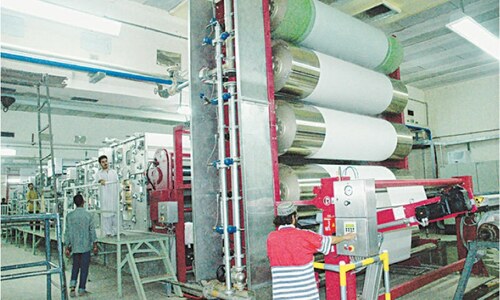
IT’LL be back soon enough. The drama, conspiracy and crisis. But in a week of relative calm it may be worth revisiting the basics.
There’s two things few want to admit.
One: a coup can’t deliver because, assuming the best of intentions, the time needed for reforms to become permanent is longer than the duration a dictator can hang on.
And as soon as the dictator is gone, everything he touched will be rolled back — because that will be the politicians’ revenge and because all the dictator’s reforms will be seen as tainted.
The governance clock will essentially be reset.
Two: politics here is quite fluid, with new options — whole parties, in fact — materialising regularly enough. The myth of perpetual political power is exactly that — a myth.
That’s a good thing. Because new options and new parties potentially means new ideas and new politics. Put those two things together — the pragmatic and the romantic — and you have a pretty solid case against a takeover.
Why bother if it can’t work?
The good thing about the current silliness is that we don’t have to be radically hypothetical. The run-up, context and the figures themselves are all known to us.
If there’s a takeover, it’s easy enough to guess what it would look like: a reboot of Musharraf’s first spell, between 1999 and 2002.
If there’s a takeover, it’s easy enough to guess what it would look like: a reboot of Musharraf’s first spell, between 1999 and 2002.
There’re several reasons for that. The whole conversation of intervention has revolved around not a new system, but a pause to structurally firm up the existing system. That is self-limiting.
Then there’s the court. Every coup needs judicial cover — it’s hardwired into our politics — so the coup-maker can’t just disband the court.
That gives the court leverage and it will use it to impose a relatively short fixed time frame. Musharraf got three years, the next time round it may be just two.
And then there’s Imran. He’s never been PM and for every year there’s a dictator on the scene, that’s one less year Imran has to realise his dream. The PTI’s unwhetted appetite for power will help force a quick return to some kind of ballot box.
The agenda is also relatively easy to guess. It’ll be a rehash of Musharraf’s seven points from Oct 1999 with references to domestic militancy and regional threats layered on top.
After that, the coup-maker will get down to business.
Accountability will be jump-started; a small-ish cabinet of retired generals and Western-trained technocrats will impose discipline; and the finance team will be ordered to deliver blingy, urban-led growth to keep the middle class happy.
Stability is relatively easy to manufacture.
The hard business is structural change. The bureaucracy, police and local governments are the usual suspects. The justice system is usually insulated from a dictator’s reforms crusade because he depends on the judges for legitimacy and protection from legal assault.
But changing how the state is organised and how it interacts with the people is a long-term game. Our dictator will only have a couple of years at first.
Say it’ll take 10-15 years for police reforms to become irreversible — for the institution to be meaningfully insulated from politics and for the results to be significant enough that the people themselves will oppose reversal.
But our dictator will be forced into the political process in two or three years, either creating a new party or formalising an alliance with the PTI.
A return to the political process means two things: compromises that will undercut your governance and reforms agenda; and space for political opponents to start the work of dislodging you politically.
A dictatorship can last an election cycle or two — but three is near impossible.
Because fatigue with the dictator’s rule, the public’s unhappiness with results and the compromises made, and the opposition of the parties he will have shut out from power will grow overwhelming.
Forced into survival mode, the dictator will make more compromises — further eroding his original reforms and governance agenda.
Eventually he’ll be gone and the first job of the triumphant politicians will be to dismantle the dictator’s legacy. Back to square one.
That gap — the five or 10 years between when a dictator’s reforms become irreversible and the number of years he’ll have in power — is the fatal problem of dictatorships.
There is no known workaround. No way of making reforms permanent in a shorter time frame. And no way of hanging on in power longer to protect his reforms.
The system itself prevents a dictatorship from delivering. For that we must be grateful.
Then there’s the other side. The PPP rose in the ’60s, the MQM in the late ’70s/early ’80s, the PML-N as we know it in the early 1990s. The latest is the PTI.
The actual remarkable fact of Pakistani politics is the steady pace at which new options have emerged, roughly one big party every decade or so.
Arguably, if it hadn’t been for the Musharraf years, the PTI would have crested before the Oct 2011 Lahore earthquake. And now the succession struggle in the PML-N could trigger a new party in Punjab.
Politics is not the closed, fundamentally rigged system it is made out to be; new options keep emerging. For all we know, democratic continuity could accelerate the arrival of new political parties and politics.
Flawed as they all are, the PTI, PML-N, PPP and MQM represent reasonable political choice. Add in the rise of new parties or new leaderships and it would look fairly competitive. A degree of political self-cleansing may become possible.
But enough of the pragmatic and the romantic. It’ll be back to drama, conspiracy and crisis soon enough.
The writer is a member of staff.
Twitter: @cyalm
Published in Dawn, October 29th, 2017











































